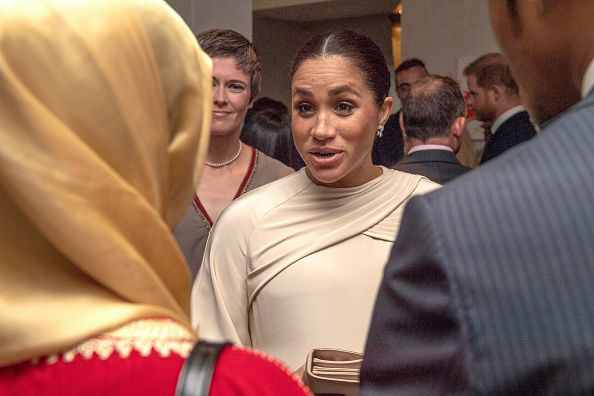Meghan Markle ‘Confirmed’ She’s Expecting A Boy At Baby Shower, Source Claims

Meghan Markle may have just confirmed that she is pregnant with a baby boy.
Sarah Barns, a journalist for The Sun, claimed that someone from the Duchess of Sussex’s recent baby shower was informed that the royal is expecting a baby boy in the spring. “She was talking openly about it,” a source said.
However, royal fans won’t really know for sure if Markle and Prince Harry will have a baby boy until after the “Suits” alum gives birth. It has been a common practice among the members of the royal family to make this announcement only after a baby is born.
But last week, there were also some rumors suggesting that Markle was pregnant with a baby girl or that she could be having twins. During her lavish baby shower in New York, Markle’s guests arrived with presents adorned with a blue wrapping paper.
The venue of the baby shower was also decorated in mostly pink hues, fueling speculations that Markle could be pregnant with a baby girl. But since blue and pink were the theme for the private event, some royal fans were convinced that Markle and Prince Harry will have twins.
Bookies Betway also speculated on the possibility of Markle having twins earlier this month and estimated the odds at 5/1 from 10/1. Betway originally predicted the possibility of the Duchess of Sussex giving birth to twins at 66/1.
“There were a few rumors circling around that Meghan Markle and Prince Harry are expecting twins and we went 10/1 on it happening at the start of the year. However, we’ve seen plenty of support on the couple welcoming two new members of their family in recent days and we have had to cut the prince in half to 5/1 as a result,” Betway’s Alan Alger told Express.
Meanwhile, TwinsUK also claimed that the twinning rate for mothers over the age of 35 is much higher compared to younger mothers.
© Copyright IBTimes 2025. All rights reserved.





















